The Post-Registration Professional Development Framework for dietitians is designed for individuals and teams to use to develop their career and continual professional development.
The framework has been designed to ensure dietitians and dietetic practice are visible and audible in all settings; articulating the impact of nutrition and dietetic practice and the application of core dietetic skills on the health and development of individuals, groups and populations – contributing to the development and delivery of organisations’ strategic objectives. The framework will also inspire dietitians to progress their careers from novice to consultant as well as acknowledging those at the advanced/consultant level.
The framework is not exclusive and should be used alongside any other competency-based documents requirements for the individual’s specific role.
BDA specialist groups and others can use this as a framework to develop specialty-specific competency frameworks to reflect the scope of practice of the specialty.
There are four levels to the framework: Entry level, Enhanced, Advanced and Consultant. Each level describes the expected capability at that level.
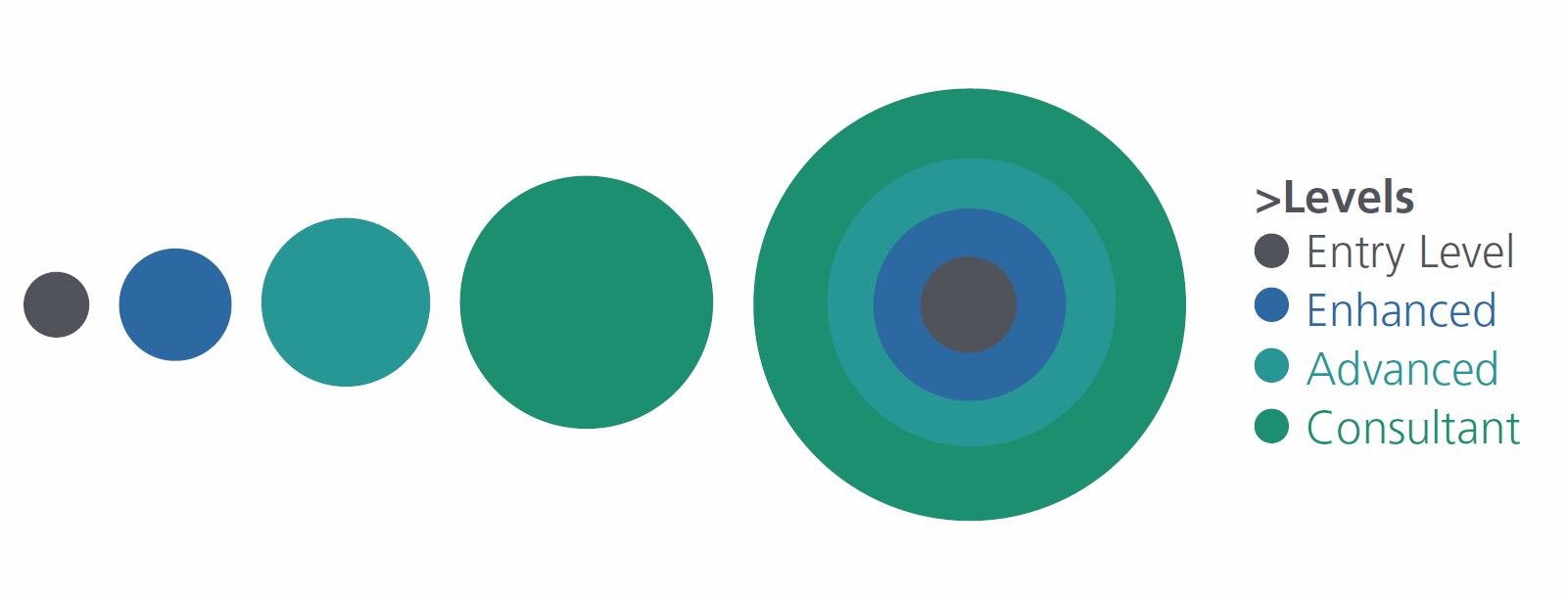
Entry Level
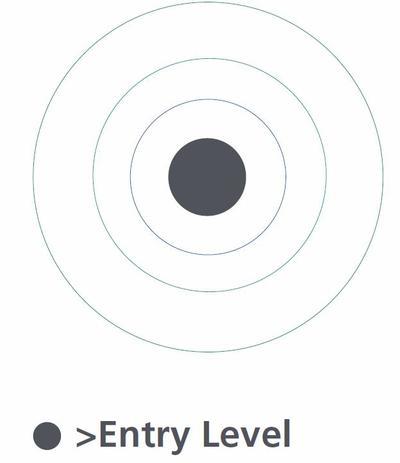
Dietitians enter the profession and develop competency through practice during their early post-registration years, working towards the Entry Level capabilities.
Dietitians at this level have a good working and background knowledge relevant to their scope of practice. They will demonstrate confidence and proficiency and show fluency and dexterity within their usual scope of practice. At entry to this level the scope will be limited but over time, with motivational support, will extend.
Dietitians at this level are able to complete most tasks using relevant standards based on evidence, taking responsibility to discharge their duties safely. They have some understanding of strategy and longer-term goals and how their practice contributes to strategy. Complex and unfamiliar situations are managed with supervision and measured planning and analysis.
Support at this level will take different forms depending on the situation and is likely to include a preceptorship programme, access to senior staff to discuss challenges and issues, graded exposure to more complex situations and CPD specifically aimed at extending scope of practice and skills. Formal 1:1 supervision is relevant to their scope of practice and supervisors are expected to steer their learning to consistently achieve a higher level of competency within their role.
Enhanced Level
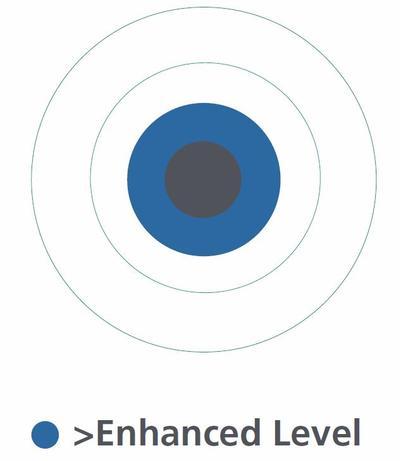
Dietitians are specialists at this level of practice with understanding of theory and practice principles without assistance or direct supervision, at an appropriate pace and with appropriate application of the evidence-base. At this level the practitioner will be able to adapt knowledge and skill to specialist or novel situations where there are increased levels of complexity and/or risk.
Dietitians at this level have an in-depth knowledge and understanding of an area of practice and routinely deliver a high standard of practice. They take full responsibility for their own work and that of others where appropriate. They will understand their organisation’s strategy and how their role contributes to this, developing their practice as necessary. They will manage complex situations confidently and holistically. They demonstrate an ability to solve problems as they arise and justify decisions made using evidence and influences from a breadth of sources.
Dietitians at this level are able to identify their development needs and access informal and formal practice supervision and/ or mentoring as necessary.
Advanced Level
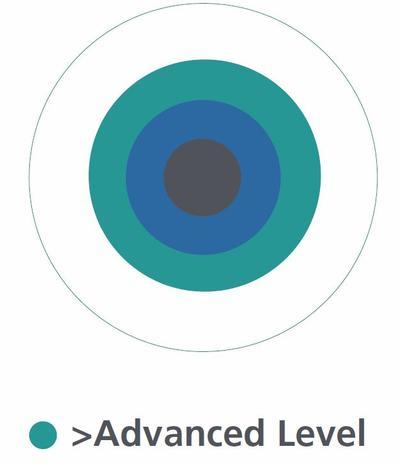
At this level, dietitians have an authoritative knowledge of their area of practice and associated disciplines where excellence of practice is achieved with ease. They will be operating at Masters level – where there is absence of full information, the dietitian will make sound judgements.
Dietitians at this level have a deep strategic understanding of the context of their practice and are able to engage others in the alternative approaches to achieve this vision. They will often show an intuitive grasp of complex situations, applying analytical approaches as necessary to support effective decision making.
Dietitians at this level will use a variety of methods creatively to continue to advance their practice including formal learning, supervision, mentoring and coaching. They will seek guidance and advice from a variety of sources including other professionals or professional coaches and mentors.
Consultant Level
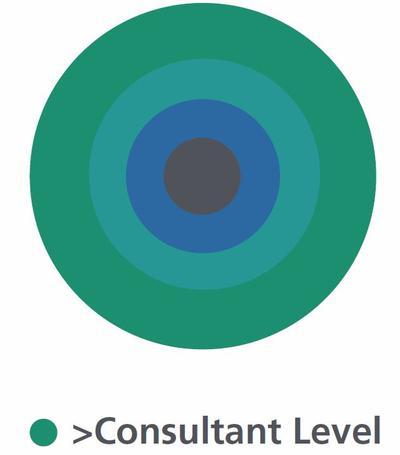
The consultant dietitian is recognised as a national and international leader in their field to the profession, both internally and externally. They may have a doctoral qualification in a subject relevant to their scope of practice. They will make informed judgements on complex issues in their specialist field, often in the absence of complete data. They innovate and lead the development of new techniques, ideas and approaches, evaluating and disseminating these to advance practice in their field and improve outcomes.
They proactively communicate their ideas and conclusions clearly and effectively to specialist and non-specialist audiences. They exercise a high degree of personal responsibility and initiative in complex and unpredictable situations.
The four pillars of practice (adapted from the Advanced Clinical Practice Frameworks of our four home countries) are embedded within each level. These four pillars are:
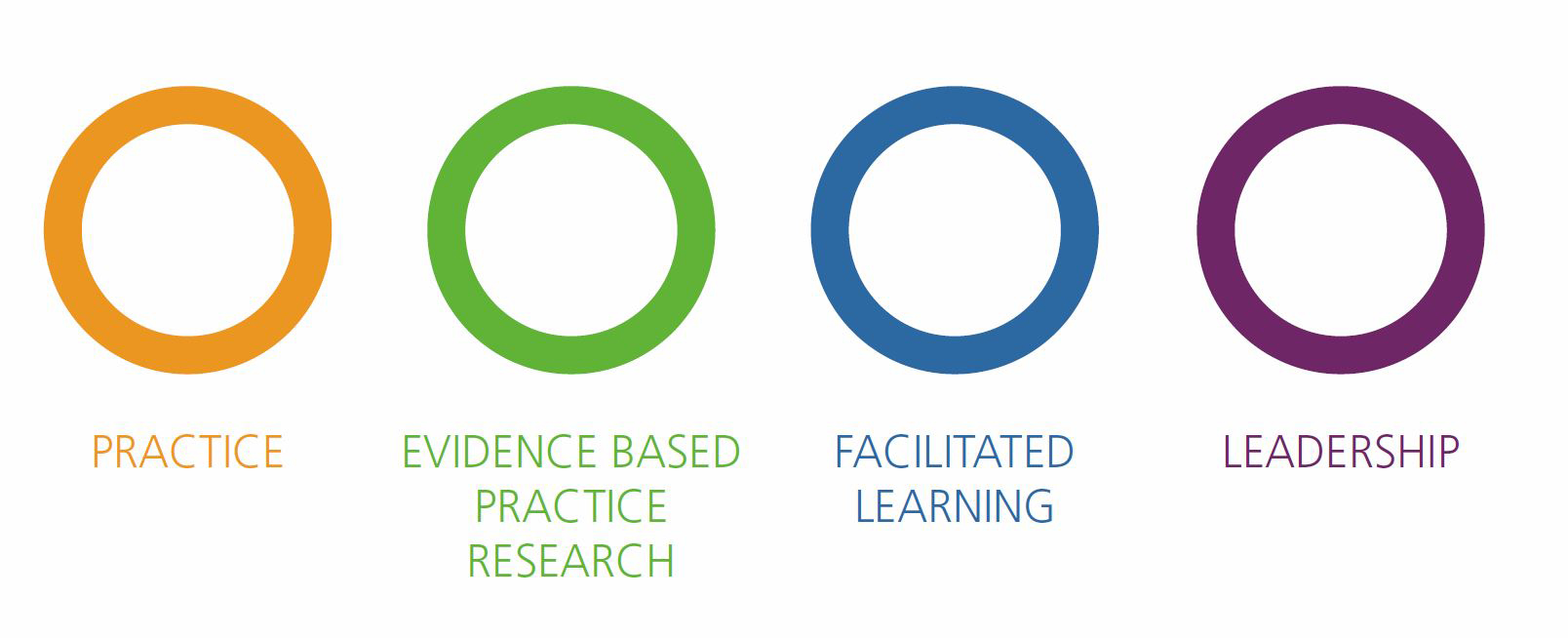
Practice
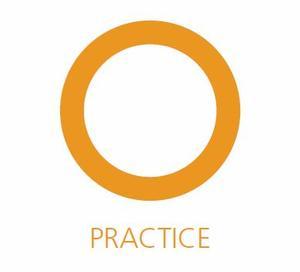
Dietitians practice within a wide range of settings including health and care services, public health, NGOs, private and consulting practice, education and research and media. The scope of practice for any individual dietitian is determined by the requirements of their role and their personal capabilities.
It is most likely but not exclusively include the application of nutrition and dietetic knowledge.
Increasingly the scope of practice will also encompass skills and knowledge that are traditionally the realm of other professions.
Evidence based practice and research
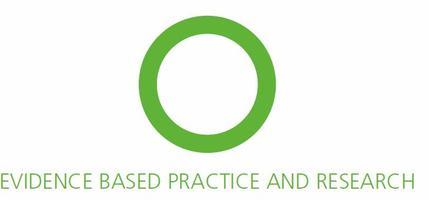
Dietitians evaluate and apply the best available evidence in practice to optimise outcomes.
They also seek to extend the evidence base for practice.
Facilitated learning
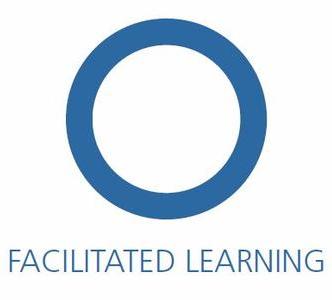
It is a core aspect of dietetic practice that dietitians share their nutrition and dietetic knowledge and skills across, and beyond, the profession for the benefit of service users and populations.
The scope could include (but is not limited to) developing a range of teaching materials, mentoring or supervision of others and developing their own skills.
Leadership
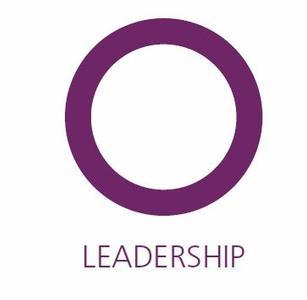
The dietitian, at all levels, acts as a professional leader within their scope of practice. They take responsibility for their actions and the quality of the service provided to service users at local, regional, national or international level.
This pillar encompasses the individual’s contribution to the strategy and delivery of services, ensuring quality and improvement of services, and managing change.
The effective dietetic leader recognises their responsibility to advocate for the profession and challenge accepted wisdom, and the status quo, to improve outcomes for all.
The levels are progressive – each building on the previous one, helping to develop a greater degree of knowledge and skills enabling you to tackle more complex situations.
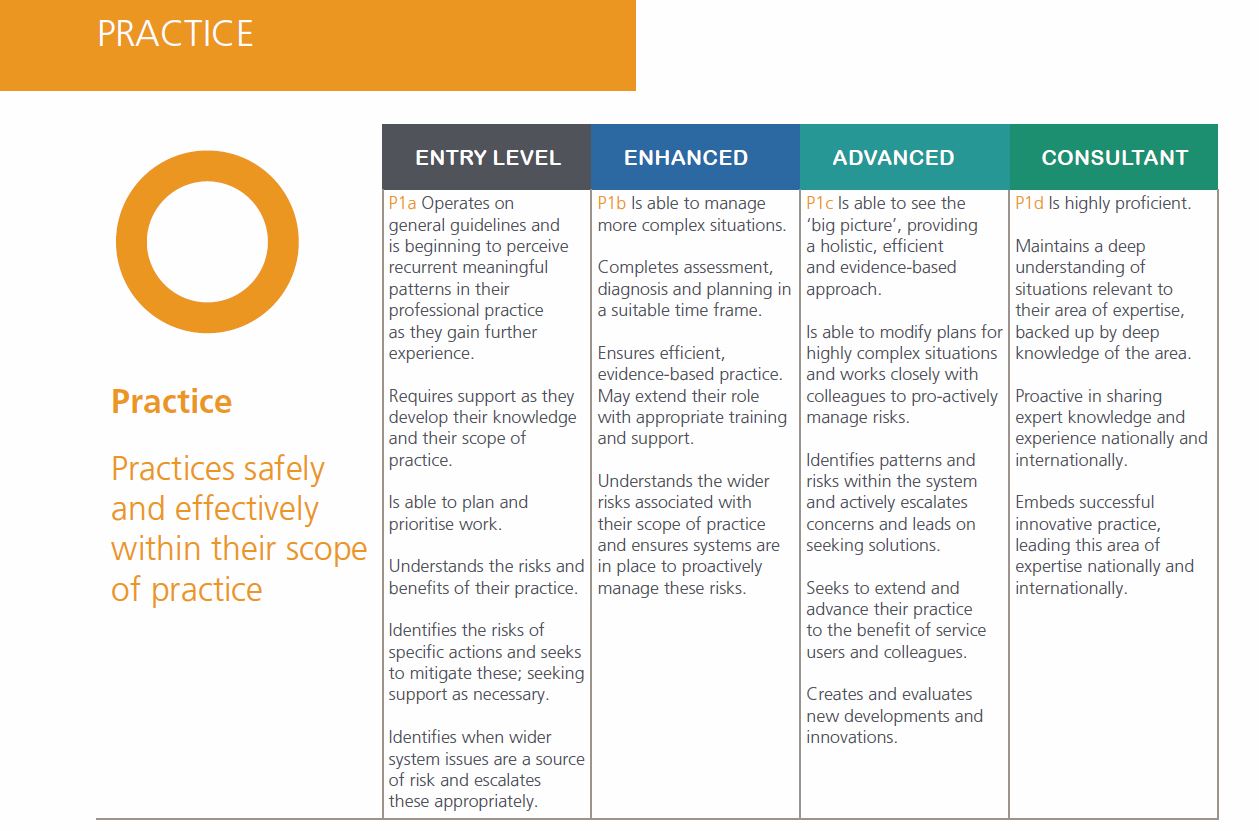
Download the PDF to view the Framework in full.

